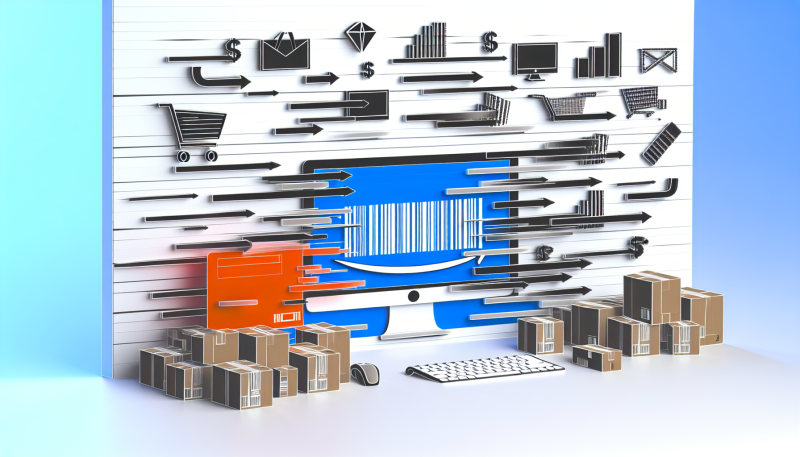The Rise of Amazon: A New Era in Retail
Founded in 1994 by Jeff Bezos, Amazon began as an online bookseller, quickly evolving into one of the largest e-commerce platforms in the world. The company’s relentless focus on customer satisfaction and vast selection helped it carve out a significant niche in the burgeoning internet marketplace.
Amazon's early embrace of technology set the stage for its expansion beyond books. By investing in efficient supply chain management and cutting-edge infrastructure, the company was able to offer a wide range of products at competitive prices. This strategic foresight established Amazon as a leader in e-commerce, transforming how consumers shop online.
Innovative Business Models
Amazon’s introduction of innovations like Amazon Prime revolutionized the retail landscape. Launched in 2005, Prime offers members benefits like free two-day shipping, exclusive deals, and access to streaming services. This subscription model not only boosted customer loyalty but also set new standards for delivery speed in the industry.
Another groundbreaking innovation was the Kindle e-reader, which transformed the way people consume books. By creating a dedicated device and a vast library of digital books, Amazon pioneered the digital reading revolution, reshaping the publishing industry in the process.
Disrupting Traditional Retail
Amazon's influence extends well beyond the realm of e-commerce; it has significantly impacted traditional retail as well. Brick-and-mortar stores have felt the pressure to adapt to consumers' increasing preference for online shopping, driven by Amazon’s user-centric approach and competitive pricing.
Many established retail giants have been forced to reconsider their strategies, often closing physical locations or enhancing their own online presence to compete. The convenience and vast selection offered by Amazon have been key factors in luring customers away from traditional retail stores.
Amazon’s Technological Advancements
At the heart of Amazon's success is its embrace of technology. The company’s investment in artificial intelligence and machine learning has paved the way for personalized shopping experiences. Algorithms analyze consumer behavior to provide tailored recommendations, enhancing customer satisfaction and increasing sales.
Amazon Web Services (AWS) is another technological triumph. As one of the leading cloud service providers, AWS has transformed the IT landscape by offering scalable, cost-effective computing resources, benefiting startups and enterprises alike.
Expanding Into New Markets
Amazon’s growth trajectory shows no signs of slowing, as it continues to explore and dominate new markets. The acquisition of Whole Foods, for instance, marked its foray into the grocery sector, allowing it to combine online convenience with in-store shopping experiences.
Furthermore, Amazon is making strides in the healthcare industry and is venturing into autonomous technology and logistics, aiming to streamline delivery processes and reduce costs. These expansions illustrate Amazon's commitment to innovation across various sectors.
The Impact of Amazon's Marketplace
Amazon's Marketplace platform has unlocked opportunities for countless small and medium-sized businesses to reach a global audience. By offering a platform for third-party sellers, Amazon has democratized retail, allowing entrepreneurs to compete on an international stage.
This marketplace model has increased product diversity and availability, giving consumers more choices while enabling sellers to leverage Amazon’s infrastructure and customer base. However, it has also raised questions about competition and practices, prompting discussions about fair treatment and transparency.
The Role of AI and Automation
The future of retail is likely to be heavily influenced by Amazon's investment in AI and automation. From cashier-less Amazon Go stores to robots in warehouses, technology is streamlining operations and reducing human error.
These advancements are reshaping the labor landscape, creating new opportunities while also presenting challenges. As Amazon continues to innovate, the retail industry must adapt to the changing dynamics brought about by automation and AI-driven processes.
Addressing Environmental Concerns
With its colossal influence, Amazon bears a significant responsibility towards sustainability. The company has taken initiatives like the Climate Pledge, promising to reach net-zero carbon by 2040. Strategies include transitioning to electric delivery vehicles, optimizing packaging for sustainability, and investing in renewable energy.
These efforts underscore Amazon's commitment to environmental responsibility, recognizing the impact of its operations on global sustainability efforts. The challenge will be maintaining growth while balancing ecological considerations.
Challenges and Criticisms
Despite its success, Amazon faces criticisms and challenges. Regulatory scrutiny worldwide reflects concerns about its market dominance and labor practices. Issues surrounding data privacy, antitrust regulations, and employee treatment have sparked debates about corporate ethics and responsibilities.
The path forward involves navigating these complex challenges, adapting to changing regulations, and addressing public concerns. As Amazon grows, maintaining a positive public image while adhering to ethical standards will be crucial.
Opportunities and Future Prospects
As Amazon continues its trajectory of growth and innovation, numerous opportunities await in unexplored domains. The potential integration of augmented reality (AR) and virtual reality (VR) into shopping experiences could redefine consumer engagement, adding immersive dimensions to online retail.
Moreover, expanding Amazon's ecological initiatives further can position the company as a leader in sustainable business practices. With ongoing technological advancements, Amazon is well-positioned to pioneer new retail paradigms, influencing worldwide trends and consumer behaviors.
Conclusion: The Road Ahead
Amazon's journey from a humble online bookstore to a global retail powerhouse is a testament to its innovative spirit and strategic vision. As it continues to influence the retail landscape, the company faces both tremendous opportunities and significant challenges. By maintaining its focus on customer-centric technology, sustainable growth, and ethical practices, Amazon can continue to shape the future of retail, setting new benchmarks for the industry worldwide.






